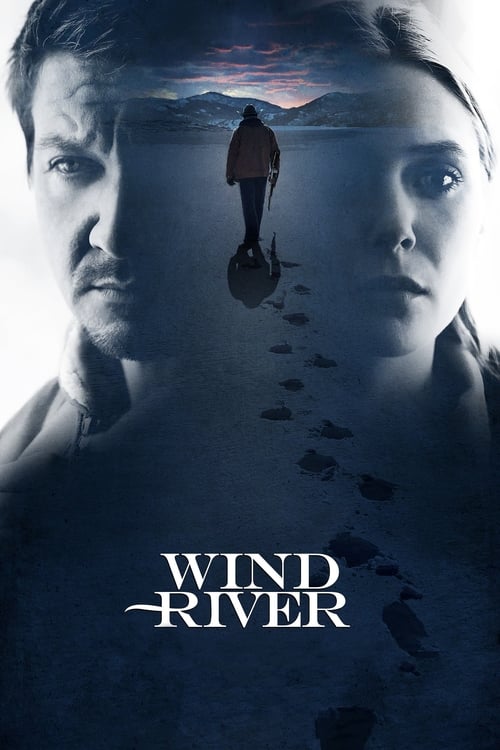Wind River – Film Review
Published October 5, 2023

Taylor Sheridan’s Wind River is an unflinching and compelling thriller that delves deep into the heart of the American wilderness, where a chilling murder mystery unfolds against the backdrop of a harsh and unforgiving landscape. With meticulous attention to detail, masterful storytelling, and powerful performances, the film emerges as a poignant exploration of grief, redemption, and the pursuit of justice. Through its haunting narrative, exceptional cinematography, and evocative score, Wind River captivates audiences, leaving an indelible mark on the viewer’s soul.
At the heart of the film lies a remarkable performance by Jeremy Renner, who portrays Cory Lambert, a seasoned tracker haunted by personal tragedy. Renner’s portrayal is nuanced and deeply empathetic, capturing the essence of a man burdened by loss and driven by a relentless desire for justice. His chemistry with Elizabeth Olsen, who plays Jane Banner, an inexperienced FBI agent sent to investigate the murder, is palpable. Olsen brings strength and vulnerability to her character, creating a compelling dynamic between the two leads. Their collaboration forms the emotional core of the film, elevating it beyond a mere crime drama.
Sheridan’s storytelling prowess is evident throughout the film, as he skillfully navigates the complexities of grief and despair while unraveling a complex murder mystery. The pacing is deliberate, allowing the audience to immerse themselves in the harsh and desolate beauty of the Wyoming wilderness. The landscape itself becomes a character in the story, its vastness and unforgiving nature serving as a metaphor for the emotional terrain the characters traverse.
One of the film’s standout elements is its unflinching portrayal of the Native American community living on the Wind River Indian Reservation. Sheridan handles this aspect of the story with sensitivity and authenticity, shedding light on the social and economic challenges faced by these communities. The film raises important questions about systemic issues, racism, and the lack of opportunities, adding depth and relevance to the narrative. Through its portrayal of marginalized voices, Wind River emerges as a socially conscious work of cinema, prompting viewers to confront uncomfortable truths about society’s failures.
Cinematographer Ben Richardson’s visual composition is nothing short of breathtaking. The vast, snow-covered landscapes are captured with a stark and haunting beauty, emphasizing the isolation and desolation of the characters’ lives. The camera lingers on the characters’ faces, capturing every nuance of their expressions, allowing the audience to feel their pain and desperation. The action sequences, particularly the film’s intense climax, are executed with precision, creating a palpable sense of tension and urgency.
The film’s score, composed by Nick Cave and Warren Ellis, complements the visuals perfectly, enhancing the emotional impact of each scene. The haunting melodies evoke a sense of melancholy and foreboding, adding depth to the characters’ experiences. The music becomes a powerful narrative tool, guiding the audience through the film’s emotional highs and lows.
Where Wind River truly excels is in its ability to subvert genre expectations. While it operates within the framework of a crime thriller, it transcends the genre, becoming a meditation on human suffering, resilience, and the search for meaning in the face of overwhelming tragedy. The film’s climax is both cathartic and devastating, leaving the audience in stunned silence as the credits roll. Sheridan’s decision to forgo a conventional Hollywood ending demonstrates his commitment to authenticity and storytelling integrity, resulting in a conclusion that lingers long after the screen fades to black.
Wind River is a triumph of storytelling and filmmaking. Taylor Sheridan, with his directorial debut, has crafted a haunting and unforgettable cinematic experience. The film’s powerful performances, evocative visuals, and socially relevant themes make it a tour de force in contemporary cinema. As a meditation on grief, redemption, and the pursuit of justice, Wind River stands as a testament to the enduring power of cinema to provoke thought, evoke emotion, and inspire change. This film is not just a thriller; it is a profound and deeply human exploration of the human spirit in the face of unimaginable adversity. Wind River demands to be seen, discussed, and remembered, solidifying its place as a modern classic in the pantheon of great films.
